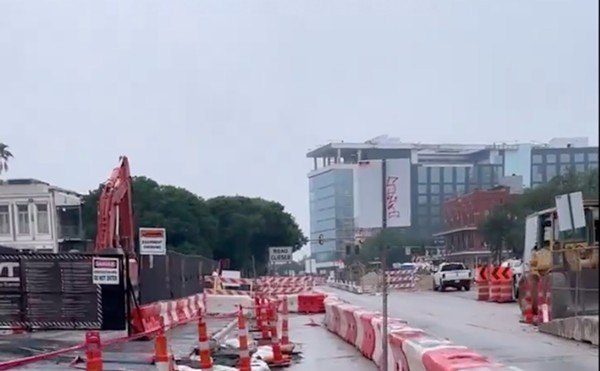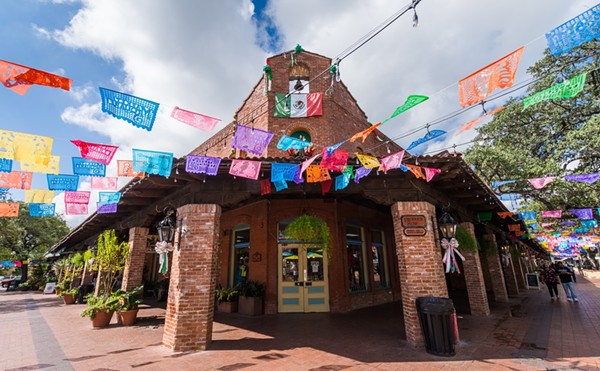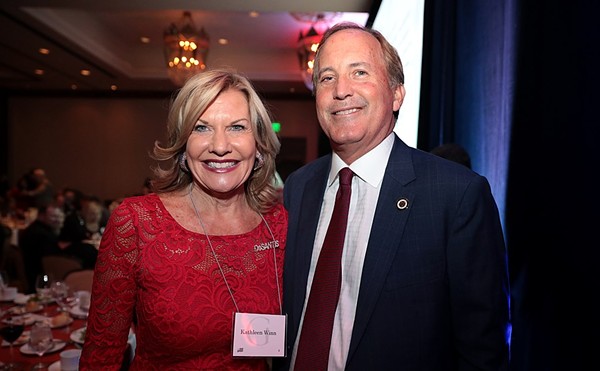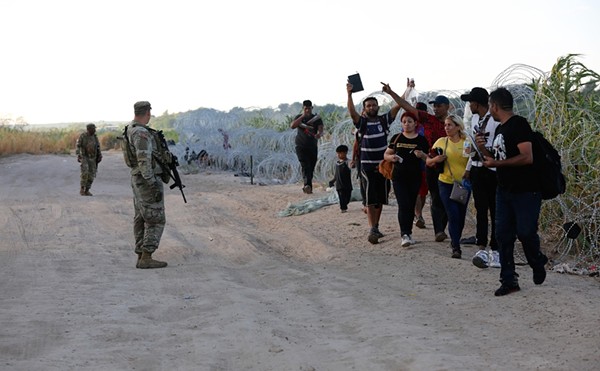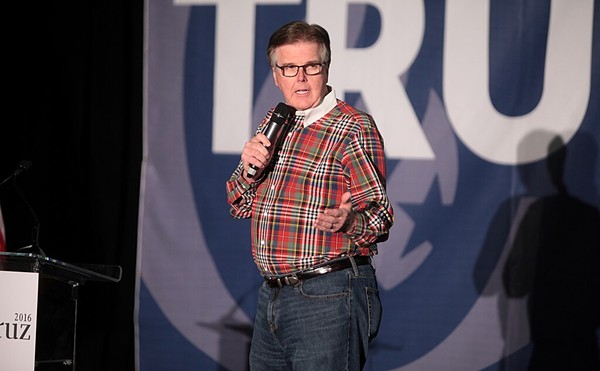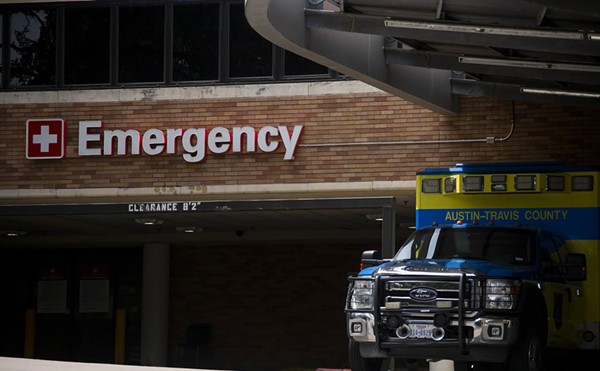1. Do you support the addition of two new nuclear power plants to the South Texas Project to meet our future energy needs? If not, please describe the alternatives you favor. If so, please explain your position or philosophy on the long-term storage of nuclear-fuel waste.
I look forward to a spirited debate on the nuclear power issue. This is clearly an issue that affects our future quality of life, and one where reasonable minds can differ. Anti-nuclear power advocates need to step up and explain what wind and solar technologies are in place as viable alternatives to nuclear power. CPS and other pro-nuclear advocates need to explain how we’re going to dispose of nuclear waste without endangering our environment and our safety. There’s not much margin for error in a world characterized by sweeping environment changes and threats of terrorism where our resources to deal with these issues are already strained to the maximum. So, we need a long-term perspective, not just a knee jerk reaction or quick fix mentality. My job is to make sure all the fine print gets read.
2. Do you support Mayor Hardberger's Mission Verde initiative in its entirety? If so, what do you see as the most critical steps council must take to implement it successfully? If not, do you support any of its provisions, and why (not)?
Mayor Hardberger is supporting President Obama’s plan to develop alternative energy infrastructure, create new energy-based industries and jobs, and weatherize homes in the community, and I support him doing so. People in my district stand to benefit from initiatives like the Green Jobs program and home weatherization, so I consider these important elements of my economic development platform.
3. What is the right mix of public-transit options for San Antonio’s future, and what do you think is the best method to fund/maintain each element?
In an economy where people need to commute back and forth to work, but the price of gas is high, it makes sense to the most efficient system for public transportation possible. A cost-efficient bus system with sensible park and ride alternatives, and a rail transit for commuting to other areas in our region, will both go a long way to help our economy compete for business in growth industries and help our residents compete for jobs in and outside San Antonio.
4. If San Antonio faces a budget shortfall, where would you be willing to make budget cuts?
We need to ensure that we don’t cut programs that deal with the elderly, the youth, and the delivery of services. But when in office, investigating the budget with a fine toothed comb to ensure financial efficiency in assorted programs will be a high priority for my office and in consultation with fellow council members and the city auditor.
5. What are your top spending priorities for the HOT tax? Would you support a recommendation to use some of those funds to expand the Convention Center?
The Hotel Occupancy Tax rate levied on every single room night charge is currently 16.75%, 2% of which is a source of revenue dedicated to paying debt service and fund capital improvements and/or maintenance of the Henry B. Gonzalez Convention Center. Its current usage is sufficient and serves its purpose well. Considering San Antonio’s primary industry is tourism, the HOT Tax and its use should remain generally unchanged. Any adjustment of it could involve a loss of tourism which would negatively impact the city. Any additions to the expansion of the Convention Center could also be detrimental to a city that has just seen a drop in tourism. Adding on to this issue is economically unsound.
6. Please briefly describe your conception of San Antonio’s economy, its strengths and weaknesses, and what you would do to build on the former and address the latter?
San Antonio’s economy has traditionally focused on tourism, health, education and the military, and these have brought us to where we are today. Now we need to look at some of the information technology industries and alternative energy industries, and beef up our workforce development programs to make us more competitive with other cities and regions in the areas that most contribute to economic growth.
7. Keeping in mind the playground scandal, the Healy-Murphy Park sale, and the El Mercado flap, how would you increase accountability and transparency at City Hall? Specifically, would you change the role or method of choosing a City Auditor, and his/her scope of authority?
The best way to deal with issues of self-government like the ones you mention is to make sure there’s an independent review process in place for times when the political process fails to achieve the desired levels of accountability and transparency. The City Auditor position is only one of several checks and balances the City Charter establishes to do that. Under our City Charter, the City Auditor position operates in conjunction with a City Ethics Code and an Ethics Review Board, two other important independent checks and balances in our municipal system. In theory, the ethics review process ought to be equal to, if not greater than, the City Auditor position in terms of independence, accountability and transparency. Unlike a city audit, any citizen can invoke a review under the Ethics Code simply by filing a complaint that falls within the jurisdiction of the ethics review board. In theory, the same process is also fair to the respondent of the complaint since it provides due process and a neutral forum to confront allegations that may be unfounded. The possibility that this process is ineffective and underutilized is a factor that the current dialogue on the City Auditor completely neglects to consider. If we neglect important checks and balances like our citizens review processes, accountability and transparency at City Hall probably won’t change much no matter what adjustments we make to the City Auditor position. So, if accountability and transparency is what we want, then what we need to look at along with the City Auditor position is how the citizens’ review process actually works in practice, and whether it gets the job done when our citizens try actually to use it.
8. Do you support extending the digital-billboard pilot program? If so, what restrictions, if any, would you recommend on their placement and use?
The digital billboard program should encourage diversification of ownership. Most of the billboards are owned by only a few companies who have a monopoly over the billboard marketplace. There should be a quid pro quo for extending this privilege in the form of provisions to promote inclusion of small businesses.
9. Do you support SAWS' current plans to secure San Antonio's water supply? If so, please explain why. If not, please explain what you believe they should be doing differently.
As an elected representative to the Edwards Aquifer Authority representing District 2, the Authority is engaged in issues that pertain to the quality and quantity of our water, currently we are focusing on the Recovery Implementation Plan which addresses issues relevant to endangered species, vegetation, and horticultural quality. I agree with the EAA’s initiatives that address conservation plans in which SAWS has done a good job with its conservational campaigns. We want to educate the public on the needs for alternative sources of water. While we have done quite well with our sole source in the aquifer, looking into alternative sources would help us as we endeavor to manage our great natural resource.
10. Please briefly describe how you financially support yourself. How will you balance your work demands with your council responsibilities? Do you foresee any conflicts of interest between your profession (or former profession, if you're retired) and a position on council? If so, how will you handle these?
I am currently owner of my own small Insurance brokerage firm, Miller-Lucek, LLC. I intend to continue with this business if elected but will still give 100% of my effort to the community.
11. What is your opinion regarding the Parade Ordinance that is the subject of the Free Speech Coalition lawsuit? Specifically, what fees, if any, should the city charge for parade permits? Should they distinguish between types of applicants and events, and if so, how and by whom should those decisions be made?
The bottom line here is that government always needs to be extra careful when fees and permits, or any other procedure, touch on people’s First Amendment rights. Clearly, my job as a city councilman will be to make sure that the city complies with the letter and spirit of the constitution and any future court ruling applying it to the city’s Parade Ordinance. The Coalition is basically alleging that the city’s parade ordinance process is discriminatory because it favors some groups at the expense of others in terms of fees, and places too much power in the hands of the police department. The fact that the Coalition got a favorable ruling on part of their grievances, and still has the chance to prove the rest of their case to a jury, says to me that they’re getting a fair trial. Now we can all look forward to a court decision that tells us exactly what limits the city should observe in making decisions about parades, and in distinguishing types of applicants and events. But in my opinion, that’s only one example of the city’s obligations to the First Amendment rights of its citizen-pedestrians. The other pedestrians whose rights we need to respect are the everyday people in my district and elsewhere who use the streets to come and go from their homes. There’ve been credible complaints from my district that innocent people are being stopped, searched, and cited, in some cases, simply for walking alongside neighborhood streets that have no sidewalks. At the end of the day, my job is to pay attention to the First Amendment rights of all our citizen-pedestrians -- those who use the streets for parades and those who use the streets for daily necessities of life -- and to make sure those interests are represented effectively along with the general interest in public safety for the greater good.
12. Please briefly describe your philosophy toward the maintenance and funding of publicly owned and/or operated spaces such as golf courses, libraries, parks, and El Mercado. Should these entities break even, make a profit, or be viewed as investments with tangible returns? Please propose a solution for the issues surrounding either Healy-Murphy Park, El Mercado, or La Villita.
No city is complete without treasures like libraries and parks. Our city is a jewel of this nation because of our publically owned spaces and we should do all we can to keep them in the hands of the people, whether or not they make a profit. Still, we should do all we can to make sure places like these are still patronized and aren’t a financial burden on the city. Looking into innovative solutions to make endeavors like these profitable benefits the city because we own these treasures. We are responsible for them.
13. If we've failed to raise a question or issue that you feel represents your values and priorities as a candidate, please discuss it here.
Byron Miller, Candidate for City Council, District 2
Wed, Mar 4, 2009 at 12:00 am
Tags:

KEEP SA CURRENT!
Since 1986, the SA Current has served as the free, independent voice of San Antonio, and we want to keep it that way.
Becoming an SA Current Supporter for as little as $5 a month allows us to continue offering readers access to our coverage of local news, food, nightlife, events, and culture with no paywalls.
Scroll to read more San Antonio News articles
Newsletters
Join SA Current Newsletters
Subscribe now to get the latest news delivered right to your inbox.




